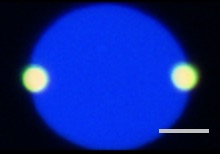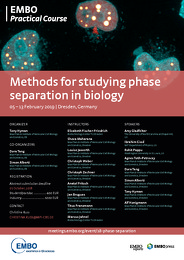Via plane
Dresden has a relatively small airport connected by Lufthansa to major German hubs such as Frankfurt, Munich and Düsseldorf. There is also an AirFrance flight from London.
Berlin Schoenefeld International airport is about 172 km from Dresden, easily reachable by regular trains.
Vaclav Havel Airport Prague in the Czech Republic is another option, 160 km away, also connected by trains about every two hours.
From the Dresden Airport, please take the train S2 available every 30 min to the train station Bahnhof-Neustadt. Then take the tram 6, in the direction Niedersedlitz, to the station Königsheimplatz. Cross the street and walk along the street Schubertstraße until you come to Pfotenhauerstraße and turn left. Our institute is at Pfotenhauerstraße 108. It is a green and blue building. It takes about 40 minutes.
Via train
Dresden is easily reachable by train. There are two train stations in Dresden: Hauptbahnhof and Bahnhof Neustadt
From the main train station [Hauptbahnhof] please take the tram 10, direction Striesen, to the station Fetscherplatz. Then take the tram 12, in the direction Striesen, to the station Königsheimplatz. Cross the street and walk along the street Schubertstrasse until you come to Pfotenhauerstraße and turn left. Our institute is at Pfotenhauerstraße 108. It is a green and blue building. It takes about 20 minutes.
You can also use tram 3 (Wilder Mann) or 7 (Weixdorf) and change at Pirnaischer Platz to bus 62 (Johannstadt). The terminal stop is right opposite ofthe Institute. It takes about approx. 23 minutes.
From the train station Bahnhof Neustadt take tram 6, in the direction Niedersedlitz, to the station Königsheimplatz. Cross the street and walk along the street Schubertstrasse until you come to Pfotenhauerstraße and turn left. Our institute is at Pfotenhauerstraße 108. It takes about 15 minutes.
Reaching the Institute via tram or bus
Take tram no. 6 or 12 and get off at Königsheimplatz. Walk along the street Schubertstraße until you come to Pfotenhauerstraße and turn left.
Alternatively, take bus no. 62 or 64 and get off at the final stop Johannstadt, which is located on Pfotenhauerstraße, only about 300 meters from the MPI. Our institute is at Pfotenhauerstraße 108. The building is green and blue.
Detailed information on public transport in Dresden including connections and timetables can be found here: https://www.dvb.de/en-gb/
Via car
from Berlin (north)
Leave Autobahn A4 at the exit Dresden-Hellerau, which will take you onto the B 170 heading towards the city center (Zentrum). Stay on the B 170 for about 5 km until it reaches the intersection "Carolaplatz". At the next intersection turn right onto the "Albertbrücke" bridge. From now on follow the signs "Uniklinikum" to the medical clinic. Once over the bridge, you have to drive a circle in order to turn to the left, which means taking the second street to the right, then turn to the right and to the right again onto "Käthe-Kollwitz-Ufer." Follow "Käthe-Kollwitz-Ufer" and turn right into "Fetscherstraße." At the first intersection turn left into "Pfotenhauerstraße." Our institute is on the right.
from Munich/Frankfurt/Leipzig (south)
Leave Autobahn A4 at the exit Dresden-Altstadt, which will take you onto the B 6. Follow the signs to the city center (Zentrum) and stay on the B 6 for about 4 km until an intersection with a Turkish Mosque on the left side. Still following the signs to the city center (Zentrum), turn left and pass the Mosque. Follow the road which turns to the right and goes under the railway bridge. This leads you to "Uferstraße" which takes two sharp bends (passing Semperoper opera house). Now you are on the "Terrassenufer" which takes you parallel to the river Elbe. Stay on this road following the sign "Uniklinikum." The street merges to "Käthe-Kollwitz-Ufer." Follow "Käthe-Kollwitz-Ufer" and turn right into "Fetscherstraße." At the first intersection turn left into "Pfotenhauerstraße." Our institute is on the right.
from Prague
Follow the highway D8 going north from the Prague circle towards Aussig (Usti nad Labem) or Teplitz (Teplice) and Dresden. The highway is interrupted in the middle by the scenic Ceske Stredohori mountain for about 20 km (narrow road, follow signs for Dresden). The trip takes about two hours.
The Max Planck Institute of Molecular Cell Biology and Genetics (MPI-CBG), founded in 1998, is one of 80 institutes of the Max Planck Society, an independent non-profit organization in Germany.
In recent years Dresden has developed at a tremendous pace into one of the leading scientific centers in the areas of cell and developmental biology, biomedicine, biophysics and bioengineering. Dresden is characterized by a vibrant international community of researchers that perform cross-disciplinary research at the highest level in state-of-the-art research centers at the Technische Universität Dresden (TUD), the Max Planck Institute of Molecular Cell Biology and Genetics (MPI-CBG), the Max Planck Institute for the Physics of Complex Systems (MPI-PKS) and several Leibniz and Fraunhofer Institutes.
Dresden is considered one of the most beautiful cities of Germany. It is located in the east of Germany in the valley of the river Elbe. Dresden is about 2.5 hrs away from Berlin as well as Prague. Being the capital of Saxony it has been a center of political and cultural life for centuries, and its skyline with the Zwinger, the Green Vault, the Painting Gallery, the castle, the Semperoper, the Court Chapel, Taschenberg Palace, and the recently rebuilt Frauenkirche are world-famous. But the city is not only famous for its baroque architecture and beautiful surrounding landscapes. Dresden has evolved into a vivid and international scientific and industrial center and is one of the most outstanding locations for research and science in Germany with emphasis on biotechnology, nano- and microelectronics. In appreciation of this dynamic development, Dresden has been awarded the “City of Science” in 2006.





